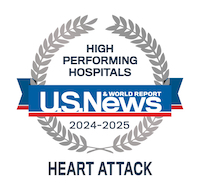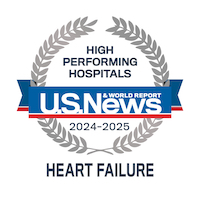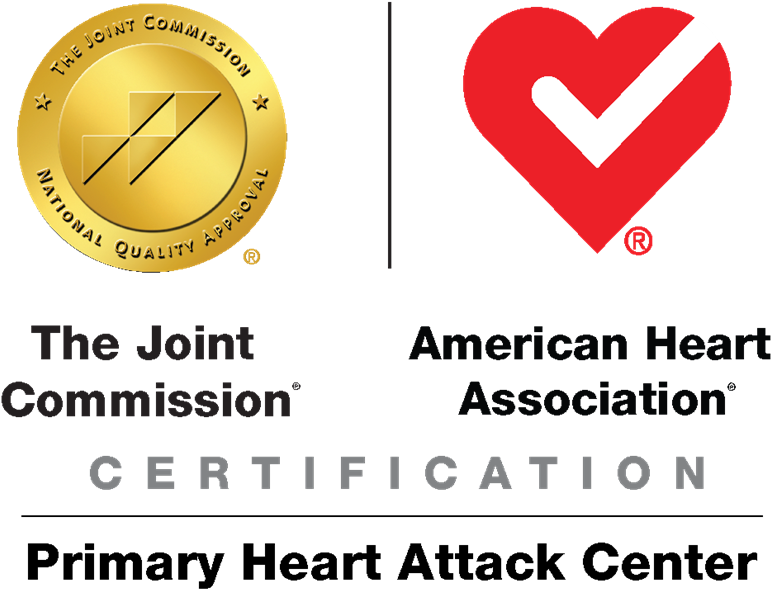Advanced Treatment and Technology
Your heart health is crucial. Cardiovascular disease is the leading cause of death in the U.S., according to the Centers for Disease Control and Prevention (CDC).
Preventing conditions like heart attack and heart failure before they develop is important. To lower your risk for heart disease, you should stop smoking, keep blood pressure under control and eat a healthy diet.
We can help in emergency and non-emergency issues. Our Chest Pain Center and emergency department are here to give you the cardiac care you need.
Find a Cardiologist
If you need a referral to a cardiologist or other physician at Spring Valley Hospital, call our free physician referral service 702-388-4888 or search for a physician online.
Diagnostics and Imaging
We have advanced technology to diagnose and treat heart disease. This includes a 64-Slice CT scanner and nuclear medicine. We also offer:
- Coronary angiography
- Coronary Computed Tomography Angiogram (CTA)
- Echocardiology
- Electrocardiogram (EKG)
- Heart valve pressure evaluations
- Peripheral vascular diagnostics
- Stress Testing
- Ventricular function tests
Award-Winning Care
Spring Valley Hospital was named a 2024-2025 High Performing Hospital for Heart Attack and Heart Failure care by U.S. News & World Report. These awards recognize Spring Valley Hospital's commitment to a higher standard of care for heart attack and heart failure.
The hospital is also certified as a Primary Heart Attack Center by the American Heart Association and The Joint Commission. This signifies excellence in patient care, short-times for treatment and patient satisfaction with care.



Learn more about Spring Valley Hospital's Awards and Accreditations
Cardiology Services
Chest Pain Center
The Chest Pain Center at Spring Valley Hospital offers rapid, round-the-clock, evidence-based treatment of chest pain and heart attack. A heart attack is a medical emergency. It occurs when there is a blockage in the blood flow supplying oxygen to the heart. A blockage can come from buildups of fat, cholesterol and other substances in the arteries. This can lead to coronary artery disease.
Cardiac Catheterization (Cath) Lab
Our cardiac catheterization lab offers advanced procedures and technology to diagnose and treat cardiac conditions. Tools such as balloons and stents are fed through a catheter into the coronary arteries to clear blockages and improve blood flow.
We also offer similar treatments for Peripheral Artery Disease (PAD) and Peripheral Vascular Disease (PVD). Our services include Lightning 12® and ClotTriever®, technologies for treatment for pulmonary embolisms (PE). Lightning 12 and ClotTriever are FDA-cleared mechanical thrombectomy devices, created to treat people with PE. The technology eliminates the need for clot-busting drugs, called thrombolytics, which often require time spent in the intensive care unit.
Electrophysiology Lab
The Electrophysiology Lab at Spring Valley Hospital treats patients with cardiac arrhythmias. It uses advanced technology to help diagnose the nature and severity of an abnormal heart rhythm. The physicians in our electrophysiology lab can then determine the appropriate treatment.
Open-Heart Surgery
Spring Valley Hospital features a team of dedicated healthcare professionals who are specially trained in open-heart surgery. One of the hospital's two operating rooms dedicated to cardiac, vascular and thoracic surgery (CVT) features a new hybrid design. The design allows for multidisciplinary approaches to minimally invasive CVT procedures.
Transcatheter Aortic Valve Replacement (TAVR)
A condition known as aortic stenosis can occur when there is a narrowing of the heart’s aortic valve. This may cause symptoms like chest pain and trouble breathing. TAVR is a less-invasive heart valve repair treatment for aortic stenosis for qualifying patients.
MitraClip™ for Heart Valve Disease
For patients who cannot have open-heart surgery, MitraClip™ is another option. This involves a simple, minimally invasive procedure designed to stop valve leakage, restoring normal blood flow through your heart. The procedure does not require opening the chest or temporarily stopping the heart.
Heart Attack: Know the Signs
You should know that men and women may have different symptoms. Men often have what are known as “classic” signs of a heart attack:
- Discomfort in the center of the chest that feels like pressure, squeezing or fullness that goes away, yet returns
- Chest discomfort along with fainting, lightheadedness, shortness of breath or nausea
- Pain that moves to the neck, shoulders or arms
In addition to a milder form of the symptoms above, women may also have:
- Shortness of breath/difficulty breathing
- Back or jaw pain
- Nausea, vomiting or dizziness
- Palpitations, paleness or cold sweats
- Mild, flu-like symptoms
- Unexplained anxiety, fatigue or weakness
If you have signs of a possible heart attack, call 911 or get to the nearest emergency room.
